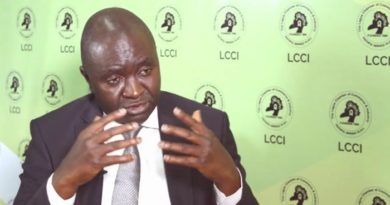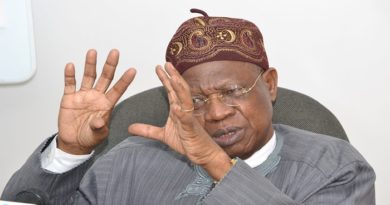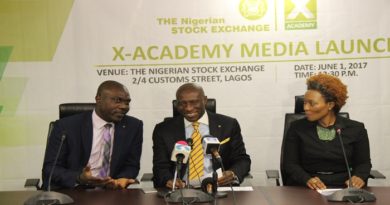Strike: NEC begs Labour, says don’t abandon negotiations
On Thursday, the National Economic Council (NEC) appealed to organised labour to stay action on the planned indefinite nationwide strike that is expected to commence on Tuesday, October 3, 2023.
A meeting of the council presided over by its chairman and the vice president, Kashim Shettima, at the presidential villa in Abuja urged the labour leaders to continue negotiations at the state level.
Governor of Plateau State, Caleb Mutfwang, disclosed the NEC resolution while speaking to correspondents after the meeting.
Recall that the Nigerian Labour Congress (NLC) and the Trade Union Congress (TUC) had directed their affiliate bodies to commence the nationwide industrial action from October 3, saying it would be a total shutdown of the system, until the government takes steps to attend to their demands.
The unions had posited in a joint statement on September 26: “It’s going to be a total shutdown…until government meets the demand of Nigerian workers, and in fact Nigerian masses. The federal government has refused to meaningfully engage and reach agreements with organised Labour on critical issues of the consequences of the unfortunate hike in price of petrol, which has unleashed massive suffering on Nigeria workers and masses.”
However, Mutfwang said that the council was of the opinion that continuing on the path of dialogue would be the best option for the economy, especially at the states’ level.
The Plateau governor added: “Council noted the notice by the national leadership of the Nigerian Labour Congress to proceed on an indefinite strike from October 3, 2023.
The Council noted further the implication of this strike for the economy and the nation and thus urged members to continue to engage with their respective states’ leadership and appeal to them to shelve the action and continue on the path of dialogue with the federal government. This is the appeal of the council.”
Explaining the grounds for NEC’s appeal further, Mutfwang described the situation of most of the states when the various governors took off on May 29, noting that many of them were just coming out of prolonged industrial strikes, adding that enforcing a new strike at this time would further damage the economy.
He, however, appealed for more time for the government to work on addressing the concerns of labour, even as he noted that there are feelers indicating that the leadership at every level genuinely wants the issues raised by the labour to be addressed once and for all.
He expatiated the NEC’s position saying: “NEC actually expressed genuine concern on the situation in the country and appreciates the concern by Labour to have those issues addressed. That is why NEC is appealing for patience, appealing for time to be able to address the concerns of Labour. We also believe that Mr. President will be addressing the nation first of October and some of the concerns of Labour will be appropriately addressed in the President’s speech.
“It is therefore important that… it’s a federation, so whatever happens Labour is represented in all the 36 states and the FCT and NEC is appealing that discussions should continue at the state levels because there will be peculiarities as to the issues to be addressed concerning the demands of Labour, therefore dialogue is the way to go.
“The nation is at a very critical moment at this time, In some of the states, when they took over on May 29, the workers were on strike; some of those issues have just been resolved for the workers to return to work. To ask them to go back immediately, it’s going to damage the economy further.
“Therefore NEC, while expressing genuine concern about the situation in the country, appeals for calm and patience and I want to believe that the leadership across the nation at this point in time wants to truly address the issues that concern Labour and the general populace and move the country forward”, he said.
The council received a presentation from the Joint Planning Board (JPB) and National Council on Development Planning (NCDP), noting on Energy Sufficiency for Sustainable Economic Development: Options for Nigeria that government at all levels should promote the migration of Heavy-Duty Industries/Transport systems from fossil fuel to Gas Infrastructure.
NEC also observed that given the new Electricity Act that empowers states and individuals to participate in all energy sector components, state governments should carry out energy audits to determine Energy needs and explore areas for collaboration with the private sector based on their comparative advantage.
Similarly, the council advised that the states should develop small hydropower plants, on or off-grid, and solar, for communities and MSMEs just as the three tiers of government should institute initiatives for the promotion of attitudinal change regarding energy use, wastage, and theft.
NEC advised that governments should promote research and development, local content, new energy (hydrogen, biofuels) prototype Investments for energy sufficiency.
The council also received a presentation on the fiscal policy and Tax Reforms delivered by the chairman of the committee, Taiwo Oyedele.
NEC gave account balances to include excess Crude Account, $473,754.57; Stabilisation Account, N34,936,868,803.58; Development of Natural Resources, N128,330,636,441.14.
NEC is a statutory body that has the mandate to advise the president on the nation’s economic affairs and is chaired by the vice president, with the governors of the 36 states of the federation, the Governor of the Central Bank of Nigeria (CBN), minister of Finance and other stakeholders as members.




